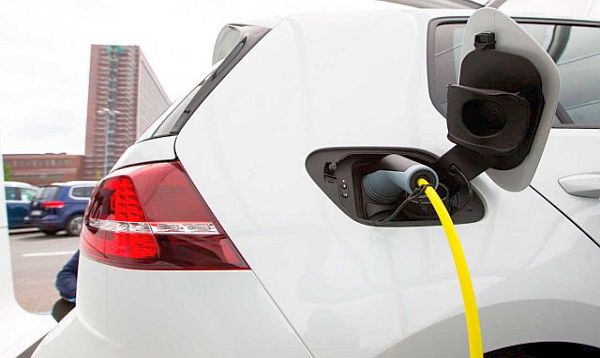Between January and October 2021, only 768 electric cars were sold, what is needed for their massive adoption in the country?
(MEXICO – TYT).- The ambitious plans of automakers to produce electric vehicles are becoming more and more common, as in the most recent case of General Motors, which announced an investment of 35 billion US dollars in electric and autonomous vehicles by 2025, with the objective of offering 30 cars of this type by 2030.
Similarly, the German giant BMW will inject more than 1,000 million euros to add 25 electric models to its inventory by 2023, or Volkswagen and Toyota, with a combined investment of 170 billion US dollars in the coming years to scale their transition from internal combustion engines to battery-powered vehicles.
However, is this enough for a country like Mexico to adopt electric vehicles as a sustainable and accessible option? The data indicates that not so far; In the accumulated from January to October 2021, only 768 vehicles with this type of technology were sold in the country, which represented 0.09% of total sales, according to data from the Mexican Association of the Automotive Industry (AMIA).
“In a utopian scenario in which the costs of technology and energy are reduced, in addition to government incentives and company support, in 10 years Mexico could achieve an accelerated increase in total sales of electric vehicles of approximately 40% total in the country. This could be quantified in environmental impact in the cities that are leaders in the adoption of these vehicles in the country”, explained Pedro Ponce, a researcher at the Tecnológico de Monterrey.
In this sense, government incentives are not only necessary to accelerate the adoption of electric vehicles, but also the costs of electrical infrastructure to install chargers, the cost of electrical energy to charge the battery and the cost of the battery must be considered.
Although the interest of Mexicans in the purchase of electric vehicles grew up to 200% in some months of 2021 compared to 2020, tax incentives are essential to install more charging stations and, above all, lower the costs of cars that they range between 343,000 pesos and more than 1 million pesos.
“The importance of subsidies is critical: there could not be an infrastructure for the supply of electricity for the insertion of these vehicles and their manufacture if there are no fiscal incentives that promote the adoption of these cars for the consumer. At this time, cars are of a high price range and unattainable for the middle class or a part of the population that could gradually adopt them. If tax incentives were given, the prices of other models could be lowered to increase their adoption and gradually change the vehicle fleet. If there weren’t these incentives for companies that develop technology, it would be very difficult for us to generate technology,” added Ponce.
Eliminate technology dependency
The specialist assured that it is necessary for the country to become a technology developer and not only to manufacture cars to be competitive, but also to provide solutions to particular issues, such as the development of key components such as batteries, electric motors and basic parts..
It also recommended the adoption of specialized software that allows the design of automobile elements without the uncertainty of how the element will behave and provides the advantage of saving elements or making a more feasible design because the proposals could be validated through the program, guaranteeing its operation in real life.
“Technology dependency is so bad in a sense because it holds us back; we could have very good proposals, but if we don’t have the elements that allow us to bring them to a design or operating term as in the case of semiconductors, we would be behind and we can’t get out”.
Electric vehicles: a door to smart electrification
In June of last year, Ford unveiled one of its most iconic offerings: the F-150 powered with help from Sunrun, a US solar energy and storage provider, with a backup residential power source to deliver low-carbon electricity to homes during power outages.
“We are thinking that the role of the electric vehicle can also change: we are not only thinking that it can charge or demand energy to charge its batteries, but that it can supply energy in different situations or needs that may arise in the city. This would have to be enabled in the city by having meters or devices that can take into account how much can be supplied towards electric vehicles to a house or another area. The network had to be planned”, pointed out the Tec de Monterrey academic.
Finally, the specialist highlighted the importance of making agreements that guarantee the supply of components in a timely manner for the established lifetimes of the brands and models, as well as measuring the economic impact to promote a sustainable ecosystem.
“There are many players that are required, not only those from the technological point of view, there is also an economic impact that must be taken into account and others that have to act as technological regulators and must be accredited, certified and make new regulations that would have to be in force. In that sense, proposing a scenario in which we would have to change from the structure of the network or adapt it to be able to supply the demand of the electric vehicle network”, explained Ponce.
TYT Newsroom




1 comment
It’s not terribly surprising to see that it’s taking longer for EVs to become more commonplace in Mexico, as certain countries seem to make these developments at different paces. I’m optimistic about the future here, though.